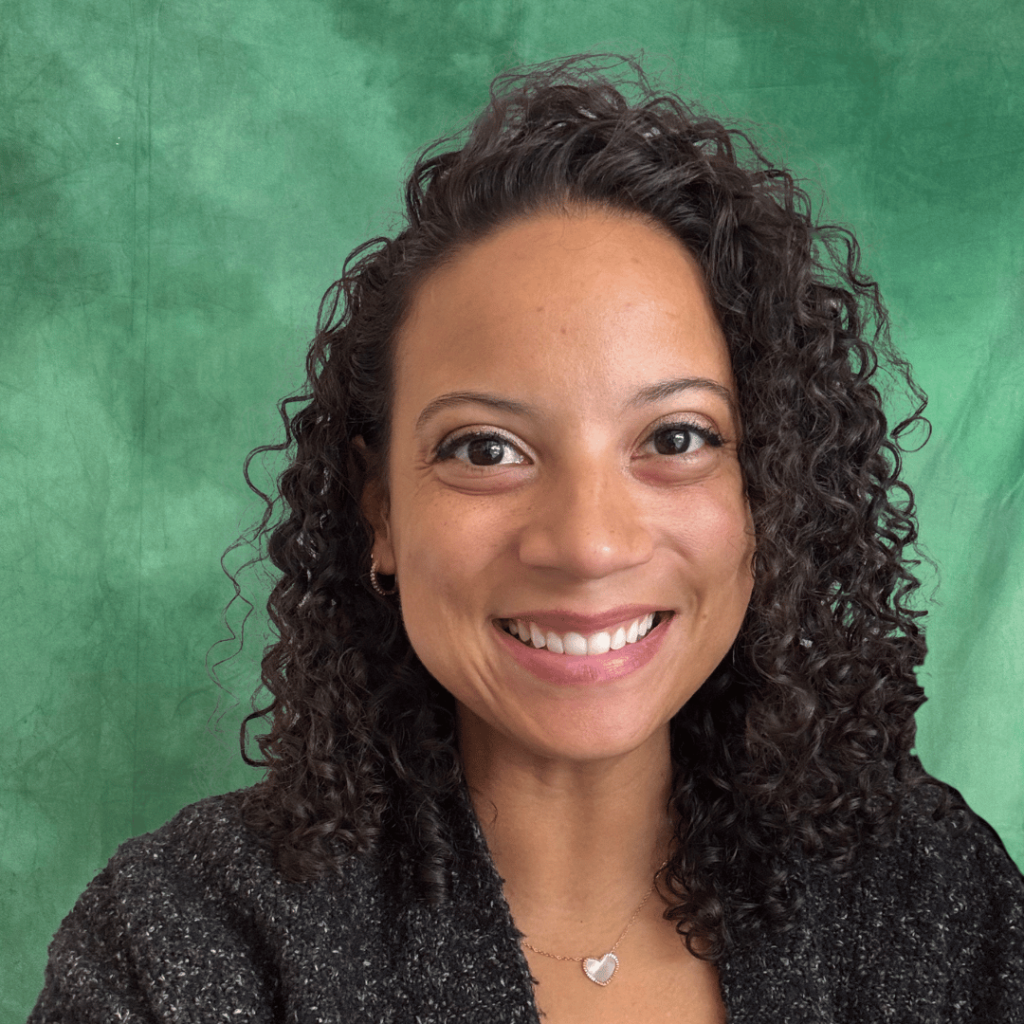Counseling for Children
Has your child been experiencing behavioral or emotional difficulties?
At our counseling center, it’s part of our mission to help parents in distress. You should never feel guilty or ashamed for seeking professional help because there is no such thing as “the perfect parent.” We use a multidisciplinary counseling approach to include the parent, along with the other primary caregivers in the household. This allows you to have an active role in the treatment of your child.


As a parent, it’s not always easy to tell when a child’s behavior is just a phase or if there is something more serious going on.
It can be very difficult to distinguish between typical developmental behaviors and if those emotions are a reason for concern.
If not addressed properly, these problems can actually have long-term effects on your child’s development. The good news – If you’re reading this, you’re already taking a proactive step in supporting the change that your child needs. Early therapeutic interventions give us a major advantage in effectively treating and changing problematic thoughts, emotions, and behavioral cycles.
Counseling Helps Problematic
Behaviors in Children.
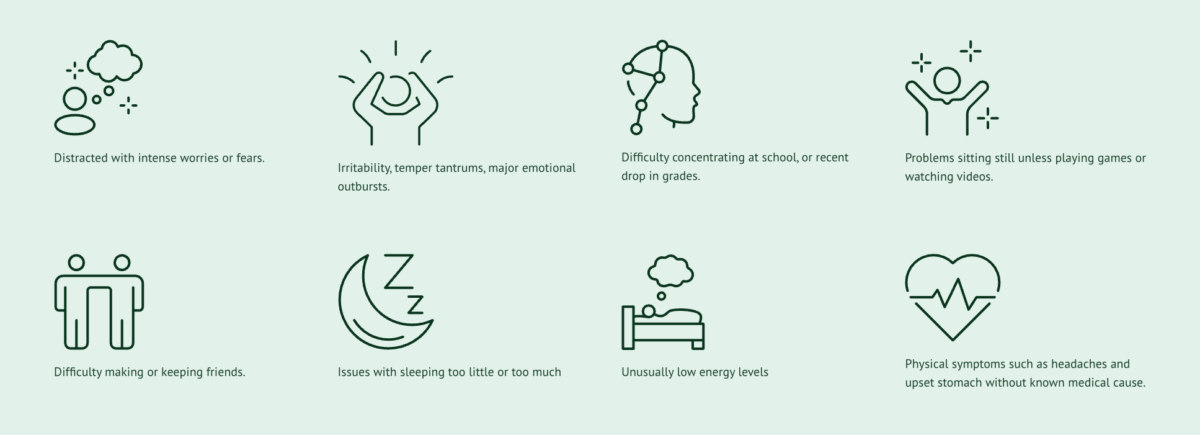
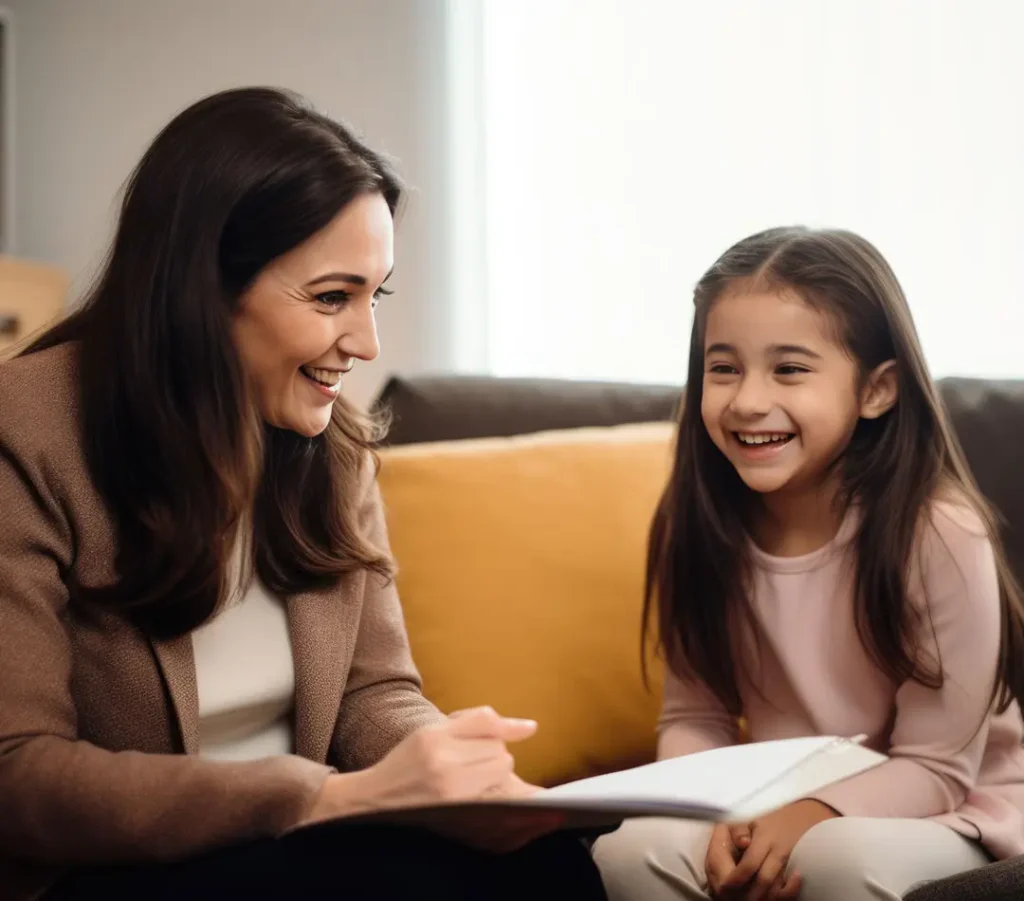
Counseling Helps Problematic Behaviors in Children
Therapy for Children is proven to help with help:
- Feelings of depression, anxiousness, or hopelessness about the future
- Loss of motivation to attend school or do schoolwork
- Big life changes such as their parents’ divorce, the transition from middle to high school, or switching to a new school altogether
- Loss a loved one or an important relationship
- Conflicts between children and parents
- Uncertain self-identity or low self-esteem
- Social anxiety when interacting with other children
- Academic difficulties
What is the Process of Counseling for My Child?
The initial 60-minute session involves parents and a licensed mental health counselor who conducts a comprehensive clinical intake to understand your child’s social, biological, and psychological history, focusing on any emotional or behavioral issues. This session helps us create an effective treatment plan by understanding your child’s behaviors, communication, and self-perception. You’ll share details on developmental milestones, medications, diet, sleep, energy levels, relationships, and more. Our goal is for you to feel confident in our therapist’s approach and be guided with treatment updates along the way. Your therapist will give recommendations for parents and caregivers to help reinforce positive change in your child outside of their therapy sessions.
The subsequent 50-minute session with your child can be scheduled according to your availability. This session marks the beginning of the psychotherapy process.

Counseling for Children is Proven to Help:

Anxiety
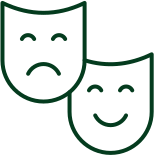
Depression

Conduct Disorders

ADHD

Eating Disorders

Academic Success

Phobias

Oppositional Defiant Disorder
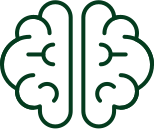
Autism
Meet our therapists specializing in Counseling for Children

Shea Dickey
Nice to meet you!
My name is Shea Dickey
Registered Clinical Social Worker Intern (RCSWI)
Ever thought to yourself, Maybe I should talk to someone? I am here to validate and confirm that asking for help doesn’t need to feel uncomfortable or shameful.
I work in Tampa
My hourly rate is: $185 for individuals and $235 for couples
My specialties are:
Adolescents and young adults, Women’s issues, Dating and Relationships, College Students, Identity, Anxiety Depression, Emotionally Focused Therapy (EFT), Self-esteem and Self-love, Boundary Setting Attachment Styles / Love Languages, LGBTQIA+
Let’s get to know each other!
Here to help you embrace all that you are and work with you to become all that you strive to be. My goal is to provide a safe space to have meaningful, inspiring, and sometimes challenging conversations that lead to you becoming the best version of yourself possible.
Therapy is for EVERYONE.
A bit more about me…
Ever thought to yourself, Maybe I should talk to someone? I am here to validate and confirm that asking for help doesn’t need to feel uncomfortable or shameful. My goal as a clinician has always been to contribute to the paradigm shift that Therapy is for EVERYONE.
As a Millennial in modern-day America, along with many others, I understand that the struggle is real. I am no stranger to the discomfort, pressure, and sky-high expectations of living in today’s society. I am passionate about working with Adolescents and young adults to navigate this changing world. I have found that despite its negative track record when used strategically, social media can become a tool to inspire and empower us. Let me show you how!
As a queer woman, I am passionate about creating safe and affirming spaces for those who identify under the LGBTQIA+ Umbrella. Whether you are questioning, struggling with identity, or looking to explore your sexuality, rest assured you do not need to do it alone with many years of lived experience and experience working with LGBTQIA+ individuals at an Inpatient Psych. The facility, my office, is a safe space for you to be unapologetically and authentically yourself.
Are you a self-proclaimed people-pleaser? Have you ever wished you were more assertive or confident? In our lives, we may sometimes find ourselves experiencing compassion fatigue or developing underlying resentment due to poor boundary setting. I am here to educate and assist with identifying characteristics of codependency, poor boundaries, and negative self-talk. Instead, we will work to develop healthy boundaries and alternative behaviors to co-dependency and learn positive self-talk. A foolproof guide to creating and maintaining healthy boundaries and meaningful relationships, if you will. Hard work at first, but you’ll thank yourself later.
I received my Bachelor’s in Social Work from Saint Leo University and continued to receive my Masters in Social Work From Florida State University. I am currently a Registered Clinical Social Worker Intern under supervision while I work towards my clinical license (LCSW). Throughout my career, I have worked in a variety of settings. I previously worked as a Behavioral Health Therapist on a Crisis Stabilization unit, as well as worked as a counselor in an outpatient substance abuse center. Each role gave me experience and lessons that assist my work with clients today.
Working with Adolescents, college students, and young adults to navigate life’s challenges.
Building self-esteem and developing personalized self-care plans to enhance the quality of life.
Learning how to tackle anxiety and depression with grounding techniques, self-care, and the development of self-esteem.
Gaining knowledge on attachment styles to enhance platonic and romantic relationships in your life.
Learning how to cope with stress from work, college, relationships, family, and lack of self-care.
My Fun Facts:
I am a HUGE Hockey Fan. (Go Lightning!!!) I have also visited 13 out of 32 NHL Arenas. I have made a habit of purchasing a home team puck from every stadium I visit to add them to a display case in my home office. Someday, I hope to visit all 32 Arenas!
I love to travel and visit the US National Parks. Hiking has become an excellent way for me to stay active and appreciate all of mother nature’s wonders. I also love indoor/outdoor rock climbing in my spare time. It has become such a great way to stay active and self-care.
I have a 4yr old long-haired Chihuahua named Kai, who is my entire world. You can often find us hanging in a hammock at Vinoy park. I find reading by the water therapeutic, and Kai enjoys watching the squirrels dodge rollerbladers and bikers on the sidewalks around us.
Although there are technically five love languages, Coffee should be the 6th. As a Pinterest quote once said, “I don’t drink coffee to wake up. I wake up to drink coffee.” During my travels, one of my favorite things is researching the best coffee shops each city has to offer. As a St. Pete local, I am proud to say some of our very own are in my top 10!

Madison Magnus
Nice to meet you!
My name is Madison Magnus
Licensed Mental Health Counselor (LMHC)
Hi there! I’m a Licensed Mental Health Counselor passionate about helping children, teens, young adults, and adults navigate life’s challenges with warmth, empathy, and gentle encouragement. I am an EMDRIA-certified EMDR therapist and use this evidence-based approach to support healing from trauma, anxiety, grief, phobias, relationship struggles, and major life transitions.
I work in St. Pete – Downtown
My hourly rate is: $185
My specialties are:
Trauma, anxiety, depression, grief, self-esteem, social anxiety, and relationship concerns Children, adolescents, teens, college and graduate students
Let’s get to know each other!
Originally from Ohio, I’ve lived across the Midwest and Carolinas before settling in sunny Florida. I earned my Bachelor of Science in Psychology in South Carolina, focusing on research in clinical depression and brain systems, particularly the vestibular system. I went on to complete my Master of Science in Clinical Mental Health Counseling and Psychology in the Tampa Bay area.
My journey to becoming a therapist began in childhood as I witnessed loved ones face mental health and substance use challenges. Those early experiences sparked my drive to understand, learn, and eventually dedicate my career to helping others. They also taught me to sit with discomfort, hold space for hard emotions, and connect authentically with people moving through adversity.
A bit more about me…
Therapy with me is collaborative, flexible, and rooted in person-centered values. I see you as the expert in your life—I’m here as a guide and partner in the process. Sessions might include EMDR, CBT, ACT, DBT skills, solution-focused strategies, or creative interventions like play therapy and art activities, always tailored to your unique needs.
I believe therapy can be a safe place to be open, silly, reflective, or unapologetically yourself. Starting therapy takes courage, and while change isn’t always linear, it’s a privilege for me to walk alongside you in your growth and healing.
My Fun Facts:
1. I enjoy reading, watching documentaries, staying active through fitness and yoga, music and going to concerts, and exploring new places through travel- Ireland is the next spot on my bucket list!
2. When I am not in session I am likely hanging with my puppy (Addy) and my three cats (Milo, Ozzy, and Margo), reading psychological thrillers, cooking, or enjoying the Florida sun.
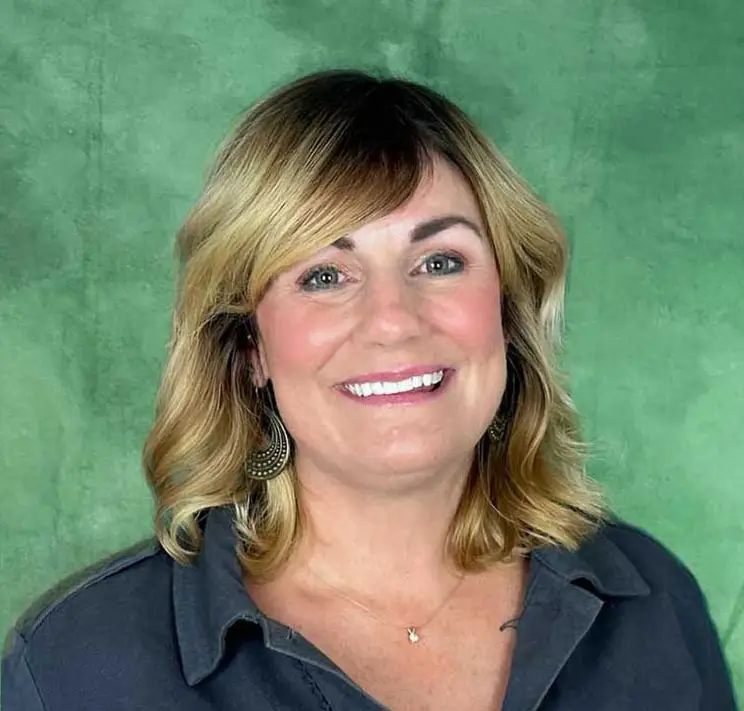
Kiesa DeSimone
Nice to meet you!
My name is Kiesa DeSimone
Licensed Mental Health Counselor (LMHC)
My passion lies in creating a safe space for you to share openly and deeply, and to create an environment where you can begin the process of healing and growth. My personal approach to counseling is catered towards the belief that when my client is seen and heard, meaningful and positive change can happen!
I work in St. Pete – Tyrone
My hourly rate is: $185
My specialties are:
Trauma, Self-esteem issues, Life transitions, Grief and loss, Anxiety, Depression, LGBTQIA+ affirming, Parenting and relationship issues, Aging concerns.
Let’s get to know each other!
My passion and gifting lies in creating a safe space for you to share openly and deeply, and to create an environment where you can begin the process of healing and growth. My personal approach to counseling is catered towards the belief that when my client is seen and heard, meaningful and positive change can happen!
As a licensed mental health counselor, we can work together in a collaborative effort to give you the tools, insight and empowerment to create something different in your life. My style has been described as soothing, comforting and compassionate, and I draw on this to create a place where you can feel safe to be gently challenged and feel capable of recognizing your own strength. I utilize an eclectic and holistic approach to therapy, including EFT (emotion focused therapy), TFCBT, (trauma-focused cognitive behavioral therapy), motivational interviewing and DBT (dialectical behavior therapy). I am also trained in EMDR, (eye movement desensitization and reprocessing) which I utilize in sessions often to reduce triggers and provide healing from trauma. Part of my sessions will include exploring themes in your past that might be influencing negative beliefs about yourself, in the hopes that if you understand where your beliefs come from, it can help to facilitate compassion for yourself and bring positive change. I truly believe that understanding how to love yourself can lead to amazing things.
I view our session together as your time, and I stress the importance of being a consistent presence to be able to help you to share in the way that meets your needs. I may ask you a question at the start of our session, like “What feels important to talk about today?” Therapy can be intimidating, and it can be a huge step for someone to seek help, and I am honored that I can be a part of the process of your journey!
A bit more about me…
I received my bachelor’s in Psychology from the University of Northwestern, and then went on to complete the first two years of my master’s in clinical counseling at Denver Seminary, and the last half at Argosy University. As a licensed mental health counselor, I have experience in helping individuals including pre-teens, adolescents, young adults and older adults, couples and families in various settings. I have worked in case management and counseling in an addictions setting, as well as three years in a community mental health setting. I had the honor of going into peoples’ homes for therapy for several years, which gave me a deeper understanding of what my clients were going through in their own environments. Being in the community mental health setting has increased my understanding of complex and traumatic issues, and attempting to understand external and internal factors that are influencing behavior and thinking patterns. My areas of passion include trauma, self esteem, life transitions, grief/loss, anxiety, depression, LGBTQIA+ Affirming, parenting and relationship issues, and aging concerns.
I am excited to start this process of healing with you, and I feel blessed to be able to share in growth and change in your life.
My Fun Facts:
- I am a proud mom of four adult children, and they live all over the country, including Colorado, Kansas and Florida. They are all so unique and special, and I enjoy visiting them as often as I can.
- I “dated” my husband in Colorado in middle school, (which consisted of smiling at each other across the hall and briefly holding hands), and then I broke up with him in the cafeteria. Twenty five years later we discovered each other again, and now have been married for five years.
- I love going to the beach as often as I can, and find it incredibly soothing. I enjoyed the mountains in Colorado Springs, CO, where I grew up, but I feel that the beach gives me the same feeling of peace.
- I enjoy music very much and sometimes use it in my therapy sessions. If you look at my playlist right now it ranges from pop to heavy metal.
- I have two very cute and naughty dogs – Remington the weiner dog and Winston the Great Dane. They bring so much of joy to our family.

Kevin Curtin
Nice to meet you!
My name is Kevin Curtin
Registered Mental Health Clinical Intern (RMHCI)
I invite you to embark on a transformative journey toward healing and self-discovery. Drawing from my background in psychology and philosophy, I offer a holistic and integrative approach that blends existential insights with evidence-based practices. Specializing in navigating challenges such as anxiety, depression, relationship issues, trauma, questions of identity, and the search for meaning and purpose. I strive to create a genuine, trusting connection where you can freely explore your thoughts and feelings. Together, we’ll develop meaningful goals, delve into the narratives that shape your experiences, and empower you to realize your true potential.
I work in St. Pete – Tyrone
My hourly rate is: $185 for individuals and $235 for couples
My specialties are:
Anxiety, Depression, Meaning & Purpose, ADHD, Identity Structuring, Relationship Issues, Communication Difficulties, Philosophical Counseling, Life Transitions, Stress Management, Coping Skills, Mood Disorders
Let’s get to know each other!
As a therapist, I invite you to explore your inner world—a journey that may have its challenges but holds the promise of meaningful growth and transformation. Together, we’ll confront what’s within, uncovering truths and tapping into your potential. My approach goes beyond addressing symptoms; it engages you in self-discovery and personal development that requires courage and commitment.
Drawing from the traditions of psychology and philosophy, I encourage you to find meaning and embrace authenticity through honest and sometimes challenging reflection. We’ll delve into the beliefs and values that shape your experiences, questioning assumptions and facing fears that may have been long avoided. This process requires confronting difficult truths, but through our shared courage, we’ll foster growth and a stronger connection to what truly matters to you.
Our sessions are tailored to your individual needs, combining existential insights with evidence-based practices. Alongside traditional talk therapy, we’ll explore techniques from positive psychology, movement, and the latest advancements in cognitive and neuroscience. By integrating these diverse methods, I aim to provide a holistic approach that promotes lasting change. While the path ahead may be challenging, embracing it can help you realize your potential.
A bit more about me…
I began studying philosophy at a young age, driven by a desire to understand myself and find my place in the world. This exploration into existential questions and the nature of reality eventually led me to psychology, where I could delve deeper into the human mind and behavior. My desire to become a therapist emerged when I experienced the profound impact of deep, exploratory conversations in my own life. Moments where two people engage—not to compete, but to genuinely listen, understand, and collaboratively delve into meaningful topics—revealed to me the transformative power of authentic dialogue. I believe that fostering this kind of connection is one of the most important aspects of our lives.
Engaging in open exploration of who we are and what we perceive with another person is, in my view, a profound form of intimacy. In a world that often feels isolating, such genuine connections become even more essential. Carl Jung captured this sentiment when he said, “Loneliness does not come from having no people around you, but from being unable to communicate the things that seem important to you.” This insight resonates deeply with me and underscores my commitment to fostering meaningful dialogue and authentic understanding in my work as a therapist.
Therapeutic Techniques I Utilize
I draw from a variety of therapeutic modalities to tailor our sessions to your unique needs:
- Existential Therapy
- Logotherapy
- Cognitive Behavioral Therapy (CBT)
- Dialectical Behavioral Therapy (DBT)
- Mindfulness-Based Techniques
- Positive Psychology
- Movement (Somatic) and Play Therapies
- Narrative
- Jungian Psychology
This integrative approach ensures that therapy is personalized, promoting lasting growth and change. If a particular technique doesn’t resonate with you, we’ll explore other options. Your time in therapy is about you, and I strive to make each session meaningful.
My Fun Facts:
- I have two master’s degrees: one in Clinical Counseling and one in Psychology & Psychometrics.
- I love movement of all types, i am a martial artist, acrobat, and skateboarder
- Music is a therapeutic outlet for me; I love to sing and play guitar.
- I’m committed to continuous learning, especially in the fields of psychology, neuroscience, and philosophy.
- I have a one-year-old red golden retriever named Plato.
“You cannot swim for new horizons until you have courage to lose sight of the shore.” William Faulkner
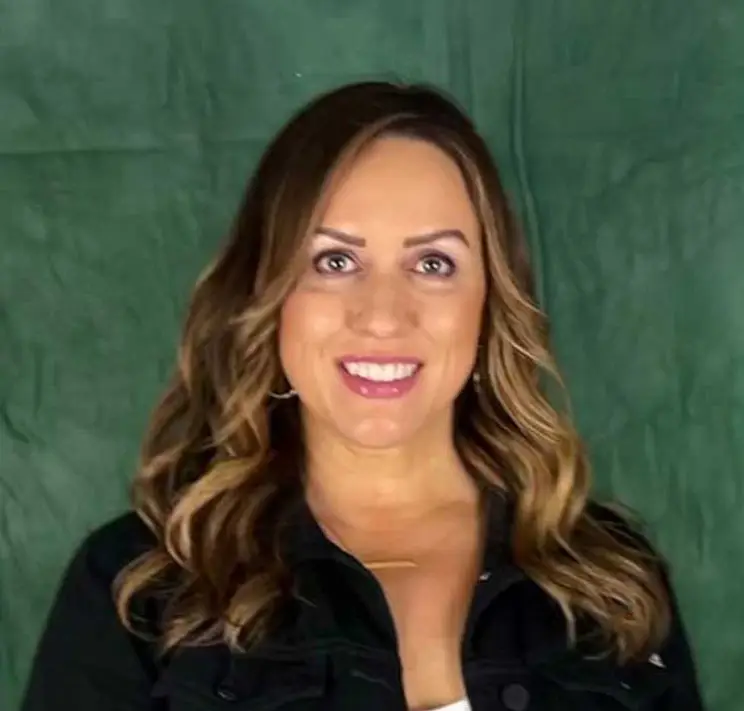
Joy Laurila
Nice to meet you!
My name is Joy Laurila
Master of Social Work (MSW) and Licensed Clinical Social Worker (LCSW)
Let’s find your Joy! My goal as a therapist is to create a safe space where you feel genuinely heard and supported. We can work together to identify your strengths, heal old wounds, find new ways of thinking, and learn new skills.
I work in St. Pete – Tyrone
My hourly rate is: $185
My specialties are:
Anxiety and Depression, Eating Disorders, including Anorexia, Avoidant Restrictive Food Intake Disorder, Binge Eating Disorder, Bulimia, and Other Specified Feeding or Eating Disorder, Body Image Concerns, Bipolar Disorder, Borderline Personality Disorder, Family Conflict, Grief, Life Transitions, Mood Swings, Obsessive Compulsive Disorder, Relationship Concerns, Self Esteem Concerns, Trauma, Walk and Talk Therapy
Let’s get to know each other!
Life is full of twists and turns. We all have a story, and we all have successes and challenges. You don’t have to face the challenges alone. Trusting another person with your story and honestly facing yourself is courageous.
Let’s find your Joy! My goal as a therapist is to create a safe space where you feel genuinely heard and supported. We can work together to identify your strengths, heal old wounds, find new ways of thinking, and learn new skills so that you can show up in your life and relationships as your best self.
A bit more about me…
From a young age, I knew I wanted to understand and support others. My rational, sensitive, and empathic nature is a natural fit for therapy. My clients can expect warmth, compassion, sensitivity, trust, honesty, respect, and collaboration. We will work together to identify and question negative thoughts and to understand the source of specific behavioral and emotional patterns. Clients have described me as having a gift of meeting you where you are while challenging you to meet your goals. With the right tools and a different approach to stressful situations, I guarantee a more balanced and peaceful outlook on any issue that life brings your way.
I also believe we can incorporate humor into therapy so you can expect to laugh together whenever possible.
Every client is unique, and we will work together to identify the best approach for you. I offer individual therapy for teens and adults. I have specialized training in eating disorders and provide family-based treatment for teens and families struggling with an eating disorder. I draw from various treatment modalities such as Cognitive Behavioral Therapy, Dialectic Behavioral Therapy, Acceptance and Commitment Therapy, Family Based Treatment, Internal Family Systems, Psychodynamic Therapy, Exposure and Response Prevention, Positive Psychology, Motivational Interviewing, and Mindfulness. I also offer Walk and Talk Therapy for those that may benefit from that form of therapy.
First and foremost, the therapeutic relationship is the most critical aspect of therapy, and I hope to earn your trust.
I grew up in Northern Michigan and obtained my Bachelor’s Degree in Social Work from Northern Michigan University. I moved to Minneapolis, Minnesota, and worked in a medical setting while attending graduate school. I obtained my Master’s Degree in Clinical Social Work from The University of St. Thomas in St Paul, Minnesota, in 2006. I have experience practicing in numerous levels of care, but my passion lies in outpatient therapy. I moved to Florida in July of 2021. I consider myself adventurous and have enjoyed exploring the area and experiencing all the beauty that Florida offers. I love spending time with family, friends, and my pets. If you see me in the morning, you will also learn that I love coffee! I would consider it a privilege to be a part of your story, and I hope to meet you soon!
My Fun Facts:
I learned to water-ski at the age of 6. I water-skied almost every day in the summers while growing up, and as a child thought I would be a professional water skier. Luckily, I outgrew that particular professional goal and decided to become a therapist!
I have been skydiving twice and would recommend it to any thrill seekers.
I love outdoor activities, but my favorites include downhill skiing, kayaking, and walking/running. I have participated in many fun runs and love to put on a costume to do so.
I love to read and was part of a long-standing book club in Minneapolis. We even started to take trips together!
I have a Maltese/silky terrier named Eddie and recently adopted a tuxedo kitten named Jack. They have become the best of friends, and I am always happy to share photos of them cuddling. I also love spending time with them, along with family and friends, and I have loved hosting visitors from the Midwest whenever I get the chance.

Jasmine Klugh
Nice to meet you!
My name is Jasmine Klugh
Licensed Clinical Social Worker (LCSW)
Life is tough, but so are you. We all have times in our lives that seem to overwhelm us. I believe we are resilient, capable of overcoming the impossible. I am passionate about empowering each individual to embark on their journey of healing. Are you ready to begin your journey?
I work in Sarasota
My hourly rate is: $185 for Individuals and $235 for Couples
My specialties are:
Anxiety, Depression, Relationship issues, Couples and Marriage Counseling, Parenting, Communication, Life Stressors, Life Coaching, Family conflict, Self-esteem, Suicidal Ideations, Behavioral Issues, School Issues, Premarital Issues, Coping Skills
Let’s get to know each other!
Life can feel overwhelming, especially for children, teens, and young adults balancing school, relationships, and personal challenges. Whether it’s handling academic stress, bullying, anxiety, or navigating family dynamics, you’re not alone. I’m here to provide support and help you or your loved one develop confidence and resilience. Together, we’ll create a safe, judgment-free space to explore your concerns, build on your strengths, and work toward meaningful change. Growth and healing are possible, no matter where you’re starting. With years of experience in school settings, I specialize in helping children, teens, and families navigate challenges. Using an eclectic approach, I tailor strategies to meet each person’s needs.
A bit more about me…
My goal is to foster a compassionate and collaborative space where clients feel heard, valued, and empowered to achieve meaningful growth.Taking the first step toward healing can feel daunting, but it’s also the most important. Whether you’re seeking tools to navigate a tough situation or ready to embrace deeper change, I’m here to help. Click to schedule a session today and begin building resilience, fostering connections, and working toward a brighter future.
My Fun Facts:
- I graduated with my Bachelor’s and Master’s from Spring Arbor University in Michigan.
- I coach high school boys and girls volleyball.
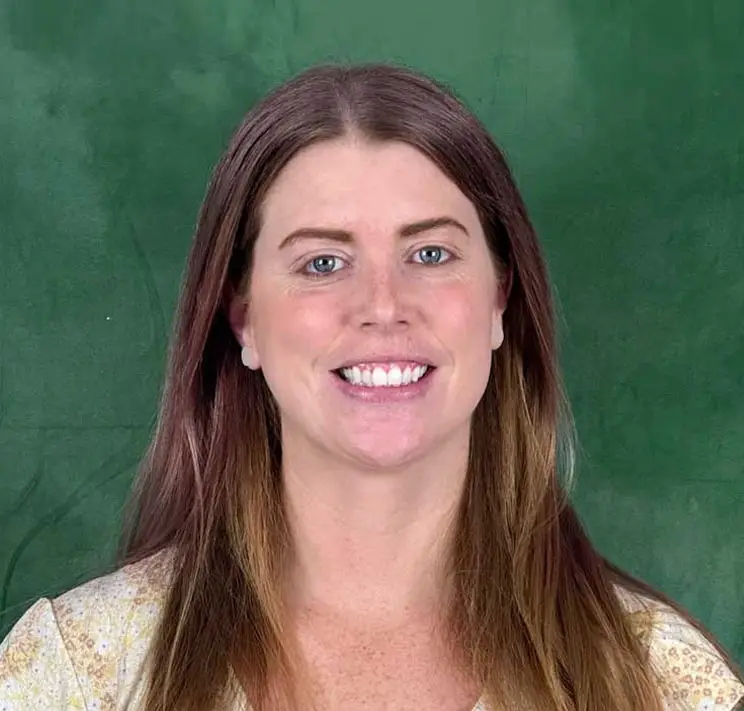
Emily Tripp
Nice to meet you!
My name is Emily Tripp
Licensed Mental Health Counselor (LMHC)
My passion is assisting my clients by helping them repair their relationships with themselves and others. I focus on empowering individuals to express their emotions through various outlets, communicate their needs, and find their purpose.
I work in St. Pete – Downtown
My hourly rate is: $185 for individuals and $235 for couples
My specialties are:
Stress Management, Anxiety & Mood Disorders, Self-Esteem, ADHD, Emotional Regulation, Life Transitions, Trauma, Addiction, Couples/Marital Therapy, LGBTQIA+
Let’s get to know each other!
I’m a Licensed Mental Health Counselor with a Graduate Certificate in Marriage and Family Therapy. I specialize in various therapeutic modalities, as well as talk therapy, to improve the connection between emotions, thoughts, and behaviors. Before private practice, I worked in multiple settings, including inpatient, outpatient, and holistic wellness counseling centers.
My passion is assisting my clients by helping them repair their relationships with themselves and others. I focus on empowering individuals to express their emotions through various outlets, communicate their needs, and find their purpose.
A bit more about me…
With the increasing dependency of technological advancements, society is moving away from the ability to have meaningful connections. Studies have shown correlations with higher anxiety, depression, and attention/comprehension affiliated issues related with increased screen time. Consequently, this results in increased isolation, imposter syndrome, the need for instant gratification, and low feelings of self-worth. I strive to help people achieve their goals of finding a sense of purpose, boosting confidence, and letting go of stressors that have consumed them.
I make clients feel comfortable with my nontraditional approach to counseling by using a range of modalities. In addition, I would consider my personality more relaxed while also knowing when to assert recommendations. In a time where individuals struggle to feel validated, it is my goal to create a safe space to help clients feel that they can trust again. By helping access the inner strengths from within, we can work together to increase a sense of awareness, connection, and ability to foster mindfulness. You are not alone. Integrating various healing components to the mind, body, and spirt can bring forth a sense of long-lasting fulfillness.
Working with clients of all ages and backgrounds grants me the experience to help tackle issues as they occur. Life transitions can be unpredictable so whether switching schools, divorcing, job changes, or death; these parts of life can promote deeper meaning. A common denominator expressed within various clients tends to be similar; feeling stuck, high expectations, unresolved trauma, stress or conflict, and shame. Nevertheless, there is an opportunity to help you heal again and uncover the potential root of the problems.
I hold additional trainings in EMDR (Eye Movement Desensitization and Reprocessing) trauma therapy and a Graduate Certificate in Marriage and Family. I studied systemic issues throughout schooling in addition to individual therapy. I am a current member of the Suncoast Mental Health Counseling Association and the International Honor Society in Psychology. The alternative modalities I have experience with conducting individual/group therapy contains music and art therapy. These can be phenomenal tools to help uncover what the mind can’t fully articulate or extract. Lastly, I utilize both Eastern and Western philosophies to accommodate an extensive range of multicultural and eclectic backgrounds. I look forward to working with you!
My Fun Facts:
- I love music and believe it has many healing benefits. In my past time, I enjoy attending music festivals and concerts of all genres. My favorite types of music are alternative rock, metal, rap, flamenco, smooth jazz, and dance.
- I have been a fitness enthusiast for over ten years. I enjoy all things strength training, running, high intensive interval training (HIIT), skateboarding, biking, and kickboxing. My heart will always be with strength training and running.
- I have two amazing daughters– aged five and one-year. They are my purpose and meaning for life and am so grateful to be their mommy.
- I received my Master of Arts degree in Rehabilitation and Mental Health Counseling from the University of South Florida in Tampa. I graduated with my Bachelor of Arts degree in Psychology from the University of South Florida in DTSP. (Go Bulls!) I attended St. Petersburg College for my Associate of Arts at the Gibbs campus.

Christopher Rhodes
Nice to meet you!
My name is Christopher Rhodes
Licensed Mental Health Counselor (LMHC)
I’m a passionate, licensed therapist that prides myself in helping others navigate life’s challenges with clarity and compassion. Through personalized, evidence-based support, I guide teens, adults and couples toward greater emotional well-being and meaningful change.
I work in Tampa
My hourly rate is: $185 for Individuals and $235 for Couples
My specialties are:
Stress, Anxiety, Depression, Trauma and abuse, Grief, Self esteem, Coping with life changes, Compassion fatigue, Attachment issues, Codependency, Communication problems, Control issues, Coping with natural or human-caused disaster, Dependent personality, Family problems, Forgiveness, Guilt and shame, Hoarding, Impulsivity, Infidelity, Isolation / loneliness, Life purpose, Midlife crisis, Process addiction (porn, exercise, gambling), Self-love, Sex addiction, Sexual dysfunction, Sexuality, Social anxiety, Young adult issues
Let’s get to know each other!
As a therapist, I believe that meaningful change starts with feeling seen, heard, and understood. My approach is rooted in building genuine, trusting relationships where clients feel safe to explore their thoughts and emotions. Therapy isn’t one-size-fits-all, and I’m committed to walking alongside each person at their own pace, honoring their experiences, and helping them reconnect with their strengths.
I work with teens, adults, and couples facing a wide range of concerns—from anxiety, depression, and life transitions to sexual dysfunction, stress, and relational challenges. I also have a special passion for supporting couples in deepening emotional intimacy, improving communication, and rebuilding trust using research-based Gottman techniques. Whether you’re navigating a major life change or simply feeling stuck, I’m here to help you move forward with clarity and purpose.
Each session is intentionally tailored to meet your unique needs. I draw from evidence-based modalities including Cognitive Behavioral Therapy (CBT), Solution-Focused Brief Therapy (SFBT), Dialectical Behavioral Therapy (DBT), Client-Centered Therapy, Gottman techniques, and Positive Psychology. These approaches allow me to help clients challenge unhelpful thought patterns, develop practical coping strategies, and build on their existing strengths in a way that feels empowering and sustainable.
Whether you’re stepping into therapy for the first time or returning to continue your personal growth, I’m here to support you with empathy, encouragement, and evidence-based care that truly fits your life.
A bit more about me…
Outside of the therapy space, I’m someone who genuinely loves connecting with my community. I believe healing doesn’t just happen in sessions—it happens in the little moments of daily life, relationships, and self-discovery. My passion for mental health is deeply rooted in a desire to help others feel more at ease in their own skin and more confident navigating the ups and downs of life.
When I’m not working with clients, you might find me getting involved in local community projects, enjoying the slower pace of small-town living, or simply recharging with a good book and a cup of coffee. I bring that same grounded, thoughtful energy into my sessions—meeting people where they are and helping them feel both supported and empowered.
As a therapist, I’m always learning and growing, just like the clients I work with. I stay current with continuing education and regularly explore new tools and techniques that may benefit the people I serve. My goal is to provide a space where you not only feel safe and heard, but also inspired to make meaningful changes that last.
My Fun Facts:
- My wife and I live in Brooksville, FL with our 5 cats and German Shepherd (all rescues!)
- I love photography and utilize old film cameras.
- I went to Flagler College in St. Augustine, FL as well as Nova Southeastern University in Tampa, FL.
- I collect vinyl records.

Brittany Hoff
Nice to meet you!
My name is Brittany Hoff
B.A., M.S., Licensed Mental Health Counselor (LMHC)
Together, we will identify the challenges you are currently experiencing and determine what you want to gain through counseling.
I work in Sarasota
My hourly rate is: $185
My specialties are:
Anxiety, Depression, Mood Disorders, Substance Use Disorders, Trauma-related symptoms, Self-esteem issues, Relapse prevention, Life challenges, Family conflict, Relationship issues, Communication challenges, Walk and talk therapy, Adolescents, young adults, adults
Let’s get to know each other!
The therapeutic relationship is one of trust, respect, and an alliance toward achieving your overall well-being. Acknowledging areas of your life that you would like to improve and deciding to do what it takes to make those changes takes a lot of courage and strength. If you feel guilty about the past, overthink the present, or worry about the future, you may benefit from having someone to talk through these things.
Together, we will identify the challenges you are currently experiencing and determine what you want to gain through counseling. Whether it be exploring your past to find the significance and meaning in certain events, providing you with healthy coping skills to overcome and work through obstacles, or setting objectives and working towards the best version of yourself – I will be by your side to help you navigate the process and achieve your goals.
A bit more about me…
I graduated from the University of South Florida Sarasota-Manatee with a Bachelor’s Degree in Psychology and from Walden University with a Master’s Degree in Clinical Mental Health Counseling with a specialization in addiction. I have worked specifically with the substance use population for the past six years, working in detox facilities, residential programs, and outpatient settings.
My goal is to educate you about the disease of addiction while providing you with relapse-prevention skills to help you maintain long-term sobriety and improve your overall mental well-being.
While working with the substance use population, I have found that substance use and mental health issues often coexist, and both require hope, compassion, and support to overcome. I am honored to take this journey with you and look forward to working together!
My Fun Facts:
My happy place is by or on a body of water! I love paddle boarding in the mangroves, springs, and rivers and am always looking for new places to explore. I moved to Sarasota in 2015 with the idea that I would be at the beach every day, and although I didn’t achieve this goal, I try to keep it a regular part of my self-care routine.
I love yoga! I’ve been practicing for over eleven years and find being on the mat incredibly healing. I completed my YTT in August of 2023 and incorporate trauma-informed yoga into my counseling program.
I have a corgi and my favorite thing to do after a long day is to hang out with her, my two cats, and my partner on the couch reading my kindle!
I am a total nerd when it comes to the brain. I plan on getting my doctorate in neuropsychology to keep me updated on the most recent research so that I can provide you with the most effective techniques for hacking your nervous system! I’ll do my best to keep neuroscience to a minimum in session, but I think it is so essential to understand the science behind your experience.

Alyssa Merryman
Nice to meet you!
My name is Alyssa Merryman
Registered Mental Health Clinical Intern (RMHCI)
I hope to help you find your path toward healing with empathy, trust, and understanding.
I work in St. Pete – Tyrone
My hourly rate is: $150
My specialties are:
Anxiety, Depression, Eating Disorders, Body Image concerns, Obsessive Compulsive Disorder, Self-Esteem, Anger Management, ADHD, Children, Adolescents, Young adults
Let’s get to know each other!
People often describe me as empathetic, kind, easy to talk to, and a thoughtful communicator. In my friend group, I was more of an observant listener, which I believe strengthens my abilities as a counselor. I have experience working with children and adolescents, as well as providing family therapy. Additionally, I have participated in group therapy focused on grief and loss, as well as eating disorders, including Anorexia and Bulimia. My passion for counseling stems from my own experiences during adolescence. Because of this, I am particularly interested in working with young people who struggle with anxiety, depression, grief, and eating disorders. Ultimately, I want to help individuals in any way I can. I believe that everyone requires support at times, and the form that support takes can vary widely. Counseling is a valuable avenue for personal growth, whether it’s for oneself, family, children, or any other aspect of life. I aspire to help you on your journey to achieving that growth.
A bit more about me…
I was born and raised in Florida and received my B.A. in Psychology from Florida Gulf Coast University in Fort Myers. After that, I earned my M.A. in Clinical Mental Health Counseling at Liberty University in Virginia. I have always known that I wanted to help people, in whatever form that might take. During my undergraduate studies, everything came together for me to pursue a career in counseling, which felt like a perfect fit for my personality. When you step into my office, I hope you feel a sense of calm and reassurance about your decision to seek help. I understand that reaching out can be a difficult step, but I want you to know that you are not alone. As you leave, I hope you feel supported and uplifted and that you look forward to returning. I recognize that some days may be tougher than others, but I aim to cultivate a warm professional relationship where we can share laughter and light moments as well. I am dedicated to helping you achieve your goals, and I want you to feel confident that you’ve made the right choice in letting me accompany you on this journey.
My Fun Facts:
-
- I have a Goldendoodle named Kaya who is spunky and sweet!
- I enjoy going for bike rides, running, etc.
- I enjoy quality time with family and friends as well as some good Netflix shows, if you have any suggestions, please let me know!
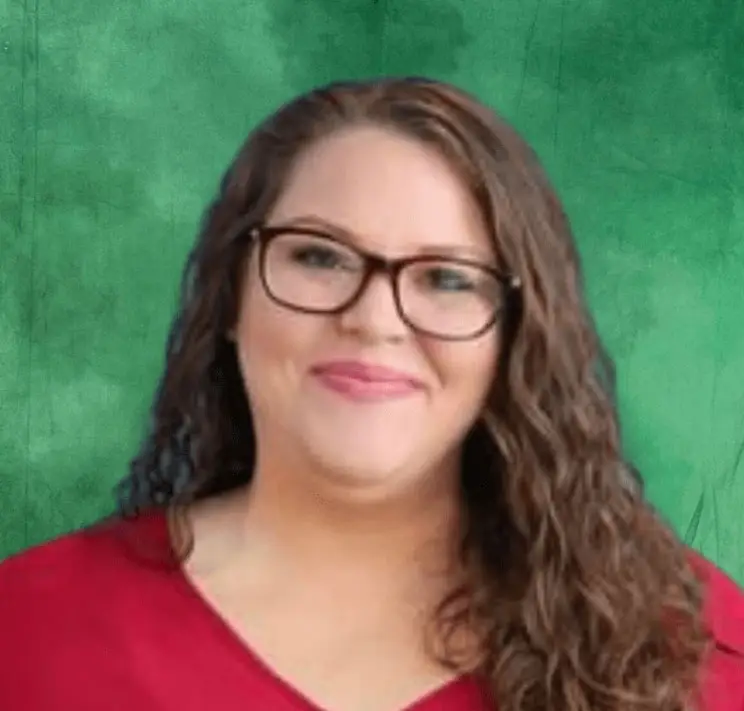
Aimee Yasin
Nice to meet you!
My name is Aimee Yasin
Licensed Mental Health Counselor (LMHC)
Too often life is full of turning points- times when you must start over or make a big decision, whether by choice or circumstance. Change is hard, whether it’s expected or not. I consider it an honor to assist my clients in navigating life changes.
I work in Sarasota
My hourly rate is: $185 for individuals and $235 for couples
My specialties are:
Couples, Individuals, Adolescents, Emerging Adults, Anxiety, Depression, Personality Disorders, Suicide and Crisis Prevention, De-escalation, Grief, Parent & Child Relationships
Let’s get to know each other!
Too often life is full of turning points- times when you must start over or make a big decision, whether by choice or circumstance. Change is hard, whether it’s expected or not. I consider it an honor to assist my clients in navigating life changes to become the best versions of themselves possible. My passion is supporting couples and individuals as they work through challenging experiences and explore new tools to be successful.
I have worked in the mental health field since 2007 in a variety of settings. I’ve worked in residential treatment facilities, home-based services, community mental health agencies, and crisis services. My experience includes children, teenagers, and adults, ages 6-65.
I have experience providing individual, family, and couples counseling. I have supported goals ranging from stress management and anxiety reduction to grief, trauma processing, and crisis de-escalation. I love working with couples and families as they navigate challenges in their relationships by providing strategies for effective communication, conflict resolution, and effective tools that address underlying areas that are impacting the relationship.
I enjoy working with individuals who experience chronic depression and/or trauma that have resulted in personality disorders. I enjoy working with adolescents and emerging adults. I use interventions from Dialectical Behavioral Therapy and the Gottman Method for couples to assist my clients in understanding the links between their past experiences and current patterns of behavior. My belief is that awareness can create change, which can create healthy minds and relationships.
A bit more about me…
I was raised in Sarasota and graduated from Riverview High School (Go Rams!). I graduated from Florida Southern College with a Bachelor’s degree in Psychology in 2006 (Go Mocs!) and then moved to North Carolina, where I worked at a wilderness residential facility for adjudicated juveniles. In 2010, I moved to Nashville, TN, where I began working in community mental health and attending graduate school at Capella University. I earned my Masters’ degree in Mental Health Counseling in 2013 and became licensed in Tennessee as a Licensed Professional Counseling with a Mental Health Service Provider designation in 2017. Once licensed, my career focused on working with military personnel and their families. I also worked as the Clinical Supervisor for Suicide Prevention and Crisis Stabilization for Centerstone of Tennessee. I opened my own private practice in 2019. Most recently, life circumstances have brought me back to the Sarasota area where I enthusiastically and quickly became a Licensed Mental Health Counselor for the state of Florida. I’m so excited to be back home and to be working in my original community.
I fully believe that starting therapy should be as uncomplicated as possible. You’ve made the decision that counseling would be beneficial for you, and that should be the hardest step you have to make! Today you are one step closer to a new you where you feel empowered and on a positive path to growth and well-being.
I am passionate about helping you find the right path for you. I believe you are the expert of your life, and it is my job to help you identify your true potential. While we can’t change difficult situations of the past, we can work together to better understand and resolve challenges in your life. By applying complementary therapy approaches and techniques, we will unearth long-standing behavior patterns or negative perceptions that may be holding you back from experiencing a more fulfilling and meaningful life.
My Fun Facts:
- My best friend is my pit bull named Blue. I’m convinced he understands everything I tell him!
- I love anything to do with the water. Give me a body of water and some sunshine, and I am set for the day.
- I’m a book worm to the core. My goal for this year is to read 52 books. I enjoy most fiction genres but have most recently been on a psychological thriller kick.
- I proudly support the US military. I have several US Marines in my family (including my brother) and was married to an Army Infantryman for close to ten years.
- At any given time, I have at least 5 different types of to-lists in my possession. Crossing things off my lists gives me life!



